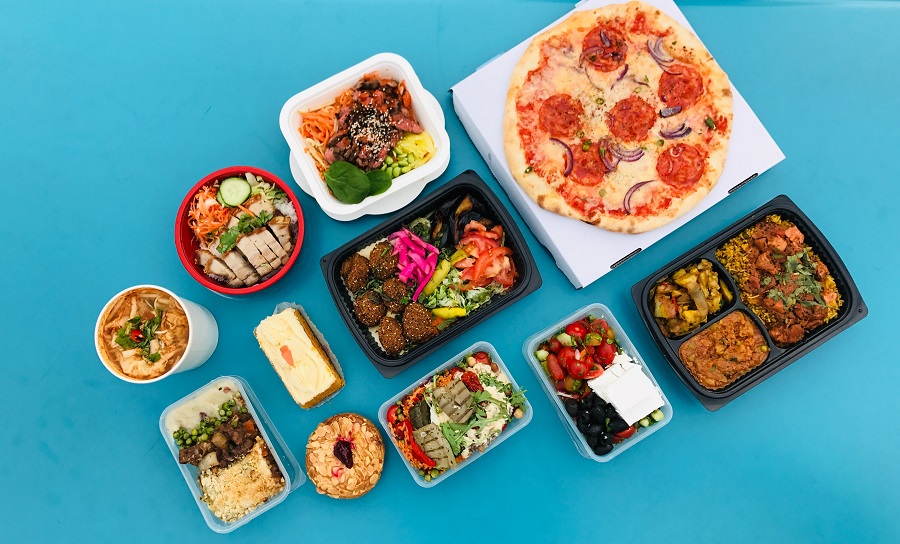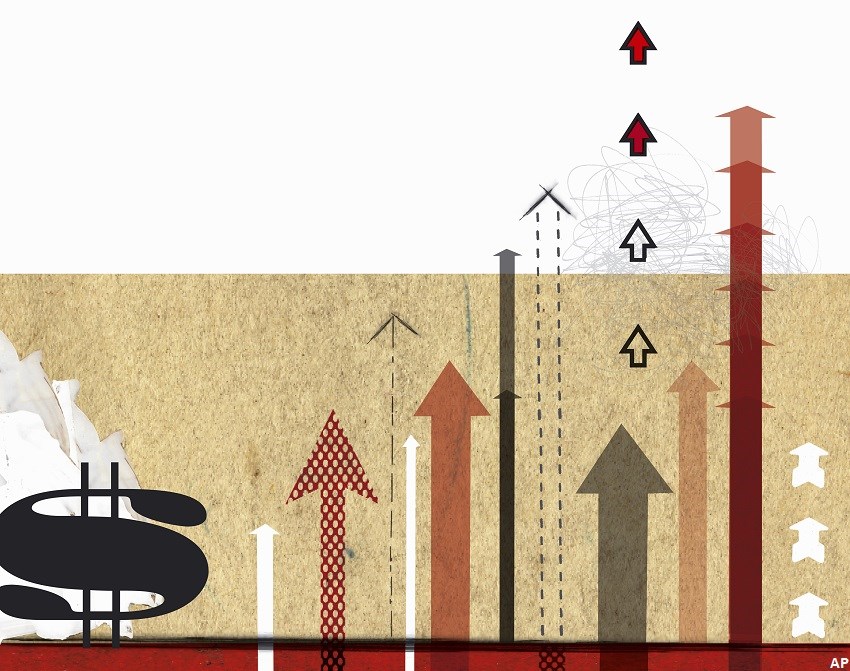
The online takeaway industry appears to be poised for substantial growth as large corporations start turning their attention to it. Last week, food delivery company GrubHub made headlines when online retail giant Amazon took a 2% stake in it to add a food delivery service to the Prime subscription program. Amazon struck a similar deal with British delivery company Deliveroo.
The meal delivery trend has seen explosive growth over the past few years, particularly during the coronavirus pandemic. The U.S.-based food delivery apps racked up more than US$22 billion in revenue in 2021, second only to China’s US$27 billion. The global food delivery industry is expected to grow to a whopping US$320 billion by 2029, from an estimated US$140 billion in 2022.
As the online ordering trend deepens, fuelled by time-strapped and digital-native younger consumers, the following companies are well-positioned to gobble up a large slice of the rapidly evolving market.
Just Eat Takeaway (TKWY) operates an online marketplace connecting restaurants with users in Europe and North America. The company, which has close to 60 million active users, operates mainly as an order-only marketplace, although it also offers last-mile delivery services.
Excluding the U.S. after its recent acquisition of Grubhub, the company’s largest geographical presence by revenue is in the U.K., Germany, Canada, and the Netherlands.
Amazon recently took a 2% stake in Grubhub, the U.S. business of takeout giant Just Eat Takeaway. The deal is part of a wider agreement with the Dutch online food delivery group.
“The business anticipates the relationship will increase membership in Grubhub Plus while having a neutral impact on Grubhub's profits and cash flow in fiscal 2022, and a positive impact beginning in fiscal 2023,” says a Morningstar equity report.
Under the agreement, Amazon could acquire an additional 13% of Grubhub. “We believe the deal will benefit both firms,” says Morningstar equity analyst Ioannis Pontikis. “Grubhub has the ability to access a large client base (150 million-160 million Prime members in the U.S.) and work with one of the most well-known worldwide brands/retailers.”
Pontikis appraises the stock’s fair value to be EUR 126, which puts the stock in the 5-star territory. “Just Eat is our top pick in the food delivery segment,” he stresses.
Global ride-sharing major Uber Technologies (UBER) connects riders with drivers and hungry consumers with restaurants and meal delivery providers. The firm's on-demand technology platform could eventually be used for additional products and services, including autonomous vehicles, delivery via drones, and Uber Elevate, an aerial ride-sharing service.
The company has operations across 63 countries and boasts over 110 million users that order rides or food at least once a month. Approximately three-quarters of Uber’s gross revenue comes from ride-sharing while food delivery accounts for much of the rest.
“Uber Technologies has become the largest on-demand ride-sharing provider in the world (outside of China),” says a Morningstar equity report, adding that “the firm’s food delivery service will continue to be one of the main revenue growth drivers.”
Both the mobility and delivery segments will benefit from cross-selling opportunities on the demand and supply sides of the platforms, the report notes.
Uber's ride-sharing network effect can also help the firm tap into other markets and generate additional revenue streams. “An example is the meal takeout and delivery market, in which Uber has gained traction with its Uber Eats service,” says Morningstar equity analyst Ali Mogharabi, who puts the stock’s fair value at US$73 and forecasts net revenue growth for Uber to average 23% annually over the next five years.
Notably, Uber Eats has grabbed share from Grubhub and has cornered more than a fifth of the U.S. market, according to data from Second Measure.
“Further utilization of Uber’s overall on-demand platform for delivery services in other verticals can also help the firm progress toward profitability,” says Mogharabi.
San Francisco-based DoorDash (DASH) is an online food order demand aggregator. Consumers can use its app to order food on-demand for pickup or delivery from merchants mainly in the U.S. The firm provides similar services for grocery, retail, pet supplies, and flowers.
Consumers use DoorDash’s app to order food for pickup or delivery from restaurants. The app holds the number one position as an online food order aggregator in the U.S. (with 56% share), ahead of Uber Technologies’ Uber Eats (26%) and Grubhub (18%). The company has over 450,000 merchants, more than 20 million consumers, and over 1 million dashers on its platform.
“The firm is at the early stages in trying to attract a larger piece of what we estimate could be $1 trillion worth of goods and services by 2025 to its platform,” says a Morningstar equity report.
DoorDash benefits from the network effects between merchants, deliverers, consumers, and intangible assets, in the form of data, which conspire to create a narrow economic moat.
“The primary market DoorDash is targeting aggressively -- consumer spending on food and beverages away from home -- are attractive and expected to grow 4%-5% annually during the next five years,” asserts Mogharabi, who puts the stock’s fair value at US$163, and forecasts 18% annual revenue growth over the next five years.
More recently, DoorDash has expanded its services to other industries including grocery, retail, pet supplies, and flowers. Access to valuable consumer data increases DASH’s attractiveness to restaurants “as those merchants can also utilize the data to operate more efficiently,” says Mogharabi.





















